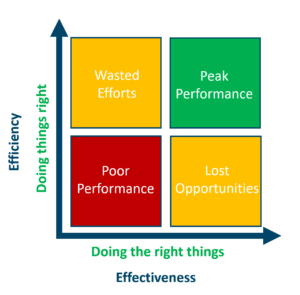I just got done deleting the 17th phishing email from my personal email inbox today. Comcast, Amazon, Princes from far-off lands, I’ve never been more popular and, apparently, soon to be rich!
I was asking our Cyber Security company why phishing is still such a big deal. I mean don’t we all know by now that some Nigerian Prince isn’t going to give us a million dollars, or that Amazon doesn’t send us emails asking for our credit card numbers, or passwords!? There is no way someone can be this stupid, right!?
Apparently, I’m way wrong, we are all still a lot stupid!
The reason phishing and spam are not because they are really tricking us. It’s the sure volume of messages and cadence. While we can all spot a fake fairly easily, can you always spot a fake when it’s sent a thousand times, all different times, with all different designs and strategies. Scammers will send a million to get one click. That one click will pay off.
Therein lies the strategy of why Spam Recruiting still works. It’s not about being good, or the best, it’s about being there all the time, knowing a certain percentage of the time will be the right time! Do we like it? Well, I guess that depends on who you are. If you happen to be that one person who gets the spam recruiting message at the exact time you’re desperate for a job, then yes, you will like it!
If you are the superstar performing software engineer getting twenty spam recruiting messages a day, you hate our industry!
Spam Recruiting Works Because It Works Some of the Time
I have never met one American-based TA Leader who believes that Off-Shore Recruiting firms (you know the off-shore RPO spam emails you get constantly all day long) actually are good. For the most part, they don’t recruit, they spam. Because they pay next to nothing to their workforce, they can spam a whole bunch and still make money, even if the entire process truly sucks.
They don’t have to be good. When you’re being paid like $10 a day, all you have to do is spam a couple of thousand people a week to get one placement a month and you’re making a profit for the “man”! Any company engaging in off-shore recruiting for hiring in the U.S. is basically engaging in slave labor. But, I digress. Back to crappy recruiting.
Bad recruiting is a lot like bad sex. If you really need a job, you don’t care how you get it. Which perpetuates you just continuing to be bad.
Spam recruiting works, and will always work, because the world will always have candidates who just need a job. They don’t care that you’re awful at your job. They don’t care that you are spamming them. All they care about is getting the job. Also, if you do care. If you do hate bad spammy recruiters. It turns out you also are fine with them being awful when you’re out of a job!
Spam works because we are all vulnerable at some point. It feeds on us being weak, naive, and desperate. But, at the end of the day, it works. It doesn’t work well. But it does work. And that sucks.


